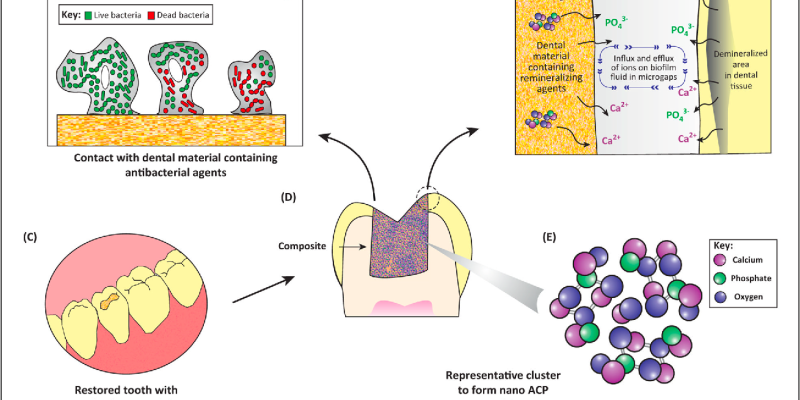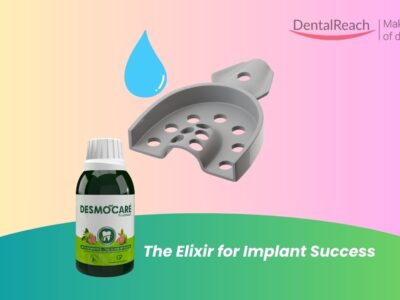Controlling caries clinically would become much easier if composites had anti-bacterial properties. A recent study tested the antibacterial properties of a novel bulk-fill flowable composite (Infinx™, Nobio™ Ltd.) incorporating quaternary ammonium silica (QASi) filler particles.

What were the methods used in the experiment?
E. faecalis or entire saliva was used as the inoculum for the in-vitro direct contact test (DCT) used to evaluate InfinixTM. As a control, a composite with a comparable formula but no QASi was used. Additionally, in a split-mouth design experiment, composite test materials were polymerized on the unharmed buccal enamel surfaces of the first premolars in three participants. As a check, the conventional composite was used (Filtek Bulk Fill Flowable, 3M).
Six months later, the bacterial viability on the composite surfaces was evaluated ex vivo microscopically using a fluorescent dead/live dye. Using a fluorescent microscope (Nikon Eclipse 80i), pictures of each bacterial sample were captured. Additional live/total cell analysis was then carried out using ImageJ software.
What did the researchers conclude?
More than 1 million E. faecalis bacteria were destroyed after coming into direct contact with Infinix which had been aged for a week. Similarly, not a single micro-organism survived when saliva was used as the inoculum.
The ratio of live to total bacteria collected from the antibacterial composite decreased by 54 percent, 30 percent, and 28 percent, respectively, in volunteers #1, #2, and #3 during the course of six-month in-vivo studies, supporting these findings.
The results of the study reveal that the antibacterial activity of quaternary ammonium silica particles (QASi) is comparable to that of previously documented quaternary ammonium polyethyleneimine particles within the constraints of the experimental methodology. Additionally, QASi-containing composite successfully kills entire salivary bacteria both in-vitro and in-vivo for at least six months.
However, an extensive clinical study is required to confirm the findings of the present investigation and its implications.
Source: Journal of Dentistry




















Comments